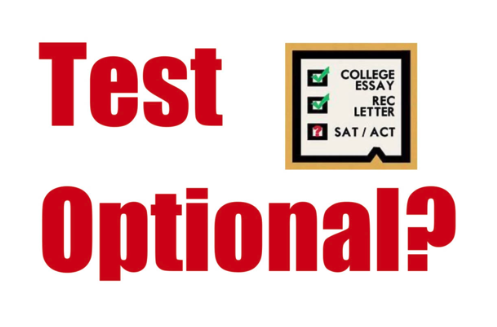Published April 28, 2020
Updated January 21, 2021
“I hear that colleges and universities are dropping the SAT and ACT this fall because of all the COVID-19 test cancelations. Does this mean that my child should skip the SAT/ACT?”
I’ve been getting this question a lot lately from concerned parents who don’t want to burden their kids with needless testing obligations. I don’t blame them for asking. What student would want to take the SAT or ACT if it were totally unnecessary for acceptance to their first-choice college or university?
Moreover, I can see why parents and students are confused. A number of misleading headlines have been popping up in my notifications over the last month talking about schools “dropping” SAT/ACT requirements for Fall 2020 to help students whose test dates were canceled due to COVID-19.
But what exactly is being “dropped?” Are the tests no longer being considered, or is the requirement simply being waived? The short answer is that for most schools, it’s only the requirement that’s been “dropped,” making these schools temporarily “test-optional.” So what precisely does “test-optional” mean for students? It’s not what you may think.
Test-Optional vs. Test-Blind
When parents ask whether students should skip the SAT or ACT given these temporary test-optional policies at some schools, they may be confusing “test-optional” schools with “test-blind” schools.
The term “test-optional” simply means that students have the “option” of submitting applications without SAT or ACT scores, giving them a chance of being admitted as long as their applications are exceptional in every other respect, including high GPAs. However, these schools still actively consider SAT/ACT scores when students submit them, making standardized test scores an integral part of most competitive applications.
“Test-blind” schools, on the other hand, make it very clear that they do not consider SAT or ACT scores at all. Even if a student submits a perfect SAT score of 1600 or an ACT score of 36, that score will not be considered in their application. According to FairTest.org, as of January 12, 2020, 68 schools in the United States have gone “test-blind,” many in response to the COVID-19 crisis, which constitutes about .01% of the 5300 schools in the US. For example, Hampshire College, Northern Illinois University, Loyola University New Orleans, and University of New England. As the admissions website of Hampshire College says:
Unlike ‘test-optional’ institutions, we will not consider SAT/ACT scores regardless of the score. Even if it’s a perfect score, it will not weigh into our assessment of an applicant.
In this regard, it can truly be said that Hampshire has “dropped” the SAT/ACT as a factor in their admissions process.
How Big is the Test-Optional Movement?
The “test-optional“ movement began around 2004 when some colleges and universities decided to expand their registration criteria to include students with high GPAs and otherwise excellent applications who might have mediocre SAT/ACT scores owing to their underprivileged backgrounds. The goal was to increase economic and racial diversity among their applicant pools. However, the goal of these schools was not to lower their standards. This policy still meant that only students with highly competitive academic records would be admitted, even if they did not submit standardized test scores.
According to FairTest.org, this movement has grown in recent years to include approximately 1685 “test-optional” colleges and universities. At last count, there were at least 5300 colleges and universities in the US. This means that only about 31% of schools in the US have gone “test-optional,” which leaves a whopping 69% that still require SAT/ACT scores to be submitted.
UC Faculty Senate Votes to Keep the SAT/ACT
Last year, the University of California system was asked to institute a “test-optional” policy for all 10 campuses. An official university task force was created to ascertain whether standardized tests create an unfair disadvantage for underprivileged students. The report came back in overwhelming support for keeping the SAT and ACT, finding that standardized tests actually help underprivileged students gain access to admissions, rather than harming their chances. As a result, the UC faculty senate recently voted unanimously (51-0) to keep the SAT and ACT requirement. For more information on this development, click here. ***UPDATE: since this blog post was written, the UC Board of Regents has voted to overturn the unanimous faculty senate vote, going test-optional for the next two years, with the possibility of going test-blind in five years. For more on this development, please see my next blog post, Standardized Testing and the Race for Diversity
SAT/ACT Scores and the Competitive Edge
Unless a school openly announces that it has gone “test-blind,” students are still far better off if they submit competitive SAT or ACT scores with their applications, even if that school has gone “test-optional.” I recently spoke to the Associate Director of Admissions for a liberal arts college that has been test-optional for over 20 years. According to this experienced administrator, even though the college is well-known for its test-optional policy, about 75% of all applicants still submit SAT or ACT Scores. Even higher percentages of students submit test scores at more prestigious test-optional schools. For example, the University of Chicago—one of most prestigious universities in America—went test-optional in 2018. According to an article in US News and World Report, however, only 15% of applicants used the test-optional policy in 2019, which leaves 85% who still submitted SAT or ACT scores. With this many students still submitting scores, it’s clear that any competitive application is far stronger with standardized test scores.
This competitive edge is not hard to visualize. If an admissions officer at a test-optional school sees two applications side-by-side with nearly identical GPAs, extracurriculars, college essays, and recommendation letters, and only one of these applications includes a stellar SAT or ACT score, it’s not hard to guess which application will come out on top. Not to mention the fact that many academic and merit-based scholarships require students to submit SAT or ACT scores as a decisive part of their applications.
So instead of seeing the COVID-19 crisis as a hall pass to skip the SAT or ACT, students should use this extra time to double down on their test prep and make their applications even more competitive. The result could be admission to a dream school, a full-ride scholarship, or both.
For further questions about test-optional schools or about SAT/ACT prep, please visit www.staging.btpdemo.flywheelsites.com or contact me at [email protected].

